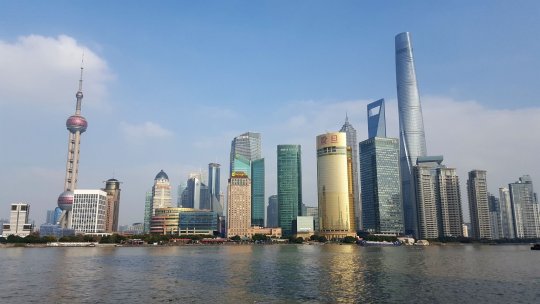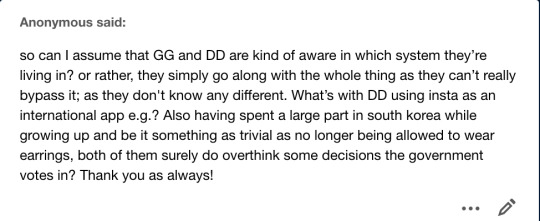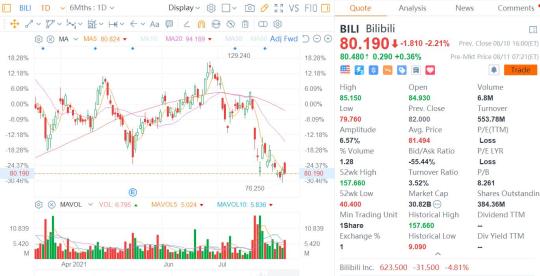#100 million views on bilibili!!
Text
The overall situation of Chinese video UGC has been decided, or should we wait for Baidu?

Since the establishment of YouTube, various imitators of YouTube models have emerged in China. Since the rise of Bilibili, the two-dimensional HE Tuber gene seems to be engraved in the very bones of Bilibili, and no one can shake it. Is there no competitor for the two-dimensional content of Station B in the mainland market?
1. Current situation: Station B seems to be hegemonic
Since YouTube was founded in 2005, China has been filled with imitators. It can even be said that early video websites, such as Youku, Tudou, Ku6, 56, etc., are almost all imitators of the YouTube model.
And after that, after the rise of Station B, Station A, etc. Entering this market from two-dimensional UGC.
After so many years, early participants have either disappeared or been acquired (such as Ku6 and Tudou), or they have transformed into long-form video film and television websites, such as Youku.
The real hegemon in this field has entered the market in the second dimension in the early stage. In fact, the target of imitation is more like the Japanese Niconico station than the B station of YouTube.
After defeating its competitor Station A in the two-dimensional UGC field, Station B began the so-called circle expansion process. The once strict entry barriers (such as the strict otaku culture test questions in the early years) have been relaxed, and a large number of general UP owners and users have been attracted.
Although this strategy has been criticized by many native two-dimensional audiences to this day. But it does allow Station B to gain huge traffic.
Station B’s latest financial report for 2023 announced that its daily active users have exceeded 100 million.
At the same time, its competitors in the same field have been completely left behind.
Including latecomers, namely Xigua Video supported by giant Byte and Haokan Video supported by Baidu.
According to statistics from the data website similarweb.
The number of visits to Station B is several times that of its nearest competitor, Xigua Video.
Xigua Video is also a project that ByteDance has strongly supported.
In the early days of its establishment, Xigua Video offered a large number of high prices to attract a large number of B station UP owners to join Xigua Video. In particular, the introduction of Wizard Finance, a new and cutting-edge financial UP owner who had just emerged at the time, attracted the most attention.
At the beginning of 2020, it spent 630 million to acquire the direct exclusive broadcast rights of "囧Mom" across the entire network, which is a large sum that only a super giant like Byte can have. It shocked the entire Internet at that time.
However, even so, Xigua Video cannot shake the status of Bilibili.
On the contrary, after a lot of investment did not get a lot of returns, Byte's enthusiasm seemed to be cooling down. A large number of UP owners from Station B also found that their income from Xigua Video was not more than that of Station B, so they returned to Station B one after another. Even the iconic Wizard Finance quietly returned to Station B last year.
This is true for Xigua Video, but competitors such as Haokan Video and Station A seem to be even further behind.
2. The dilemma of two-dimensional genes
However, is there really no room for the mainland UGC market? Or to put the question another way, is Station B’s hegemony in this field really so stable?
Here we can make an interesting comparison.
That is to examine the most viewed videos on YouTube in the world.
Currently the most played video on YouTube is "Baby Shark Dance". This children's song has been played an astonishing 13.8 billion times.
In addition, there are also a lot of videos on YouTube that have been played billions of times.
For example, "Despacito" is 8.3 billion.
"Shape of You" 6.1 billion.
"See You Again" 6.1 billion.
"Masha and the Bear" 4.5 billion times.
"Uptown Funk" 3.9 billion times.
At the same time, we can compare the playback volume of popular videos on station B.
So far, the most played video on Station B is "[Macho Man Version] New Treasure Island", with a playback data of 150 million.
Then there is "[Spring Festival Gala Ghosts] Zhao Benshan: I am the king of poetry recitation!" 》110 million.
The third-ranked "Lord of Shadow Stream" has dropped below 100 million views.
This is equivalent to saying that the highest playback volume of station B is only a few tenths of that of YouTube.
Although the number of people that Chinese Internet websites can penetrate is definitely far less than that of global giants like YouTube.
But after all, China has a population of 1.4 billion, accounting for one fifth. According to statistics from Xinhua News Agency, the number of Internet users nationwide is as high as 1.079 billion.
In theory, Station B should have videos with more than 1 billion views. And more than 500 million should not be uncommon.
It is absolutely impossible for such a huge gap to appear like today.
Obviously, there is only one explanation for this problem, and there is still a large number of potential audiences that have not been absorbed by Station B.
We can draw this conclusion by carefully analyzing the popular videos and mainstream cultural preferences of Bilibili.
For example, the top three most viewed videos on station B are all ghost and prank videos.
The so-called must-read websites are also full of various non-mainstream videos with strong meaning.
The most viewed videos on YouTube are either music MVs or children’s animations.
Comparing the two, it is obvious which one has a wider audience.
In the past few years, Station B has made a lot of efforts to break the circle. But its fundamental two-dimensional gene has not changed.
Network analysis has identified the users of station B mainly in the Z era. Research organization QuestMobile's "2023 New Media Ecological Insights" pointed out that 39.7% of users at Station B are 24 years old and below, and 25-35 years old account for 44.2%; compared with platforms such as Douyin, Kuaishou, and Xiaohongshu , Station B has the highest proportion of these two age groups, which can be called "growing together with users."
This is reflected in the culture of Bilibili, which is generally quite disgusted with mainstream popular content.
One of the most typical examples is that in early 2023, music critic Ding Taisheng openly claimed that the people who like to listen to the song "Wumei Zijiang" are young people from small towns and migrant workers who have graduated from junior high school.
After the release of such a video with obvious discriminatory and humiliating meanings, it received the support of many Bilibili users.
Therefore, it is not difficult to understand the performance of Station B in the Cai Xukun incident.
The owner of Station B’s UP made many videos that vilified Cai Xukun. Many of these videos completely violate publicity rights. But because these contents cater to the mainstream users of Bilibili. Therefore, Station B has always given the green light to this, even after the parties threatened to file lawsuits.
Obviously, outside this user group. There is still a huge potential audience.
This is why there is a huge gap between the aforementioned maximum playback volume of Station B and the theoretically achievable playback volume.
And this kind of market space also happens to provide huge opportunities for challengers.
So who will be the biggest possible opponent of Station B?
3. Station B’s biggest potential rival—Haokan Video
Although Xigua Video currently has more users. But in fact, what may really pose the most serious challenge to Bilibili is good-looking videos.
Because Haokan Video is backed by Baidu, it has full support from the search portal.
Compared with the more closed ones, it is a short video APP that is more suitable for mobile phone users.
Medium and long video UGC is much more friendly to web users.
After all, not many people watch Douyin on their computers, but proportionately more people watch Bilibili and YouTube on their computers.
Baidu's search portal can be said to be directly connected to the portal of Haokan Video. Every search may bring potential users to Haokan Video.
Once this advantage reaches a certain level on the web page, reverse transcendence can also be achieved on the mobile phone.
After all, if most of your favorite video bloggers are on one website, downloading the product APP is a high probability event.
In fact, YouTube, the world's largest UGC video website, developed with the strong support of Google.
By 2022, YouTube’s entire revenue will reach US$29.2 billion. Some observers believe its valuation may have exceeded $300 billion.
It is entirely possible for Baidu to copy this path.
And it hasn’t been done for so many years.
In my opinion, it is because there are serious problems with the product itself and the content provided by Haokan Video.
In terms of products, Haokan Video’s web version almost completely does not match the level of Baidu’s artificial intelligence giant. Its homepage does almost nothing that might increase stickiness. All recommendations are completely disorganized, and the user's past behavior has almost no impact on the home page.
Even if you have watched a video multiple times or followed a certain blogger's video, it will not be reflected on the home page.
In terms of content provision, there is a lack of real mainstream content. For example, in terms of music, there are not many official MVs provided by music companies, but music videos from various marketing accounts.
And music is the absolute number one traffic overlord on YouTube. It even accounts for one-third of the entire YouTube video traffic.
The content is lacking and the product is unattractive.
Under such circumstances, even if Baidu is indeed trying its best to promote streaming, it has already tried its best to recommend good-looking videos in various video searches.
Those viewers who were finally attracted are not willing to stay longer on the web page.
According to data from the data website similarweb.
The dwell time of each user on Haokan Video is just for
2 minutes and 34 seconds.
Far lower than the 20 minutes of Bilibili and the 15 minutes of Xigua Video.
The fundamental reason is that Baidu ignores the difference between medium and long video UGC and short videos in its guiding ideology. The target market has been fully invested in the direction of short videos.
This can be seen from its affiliation of Haokan videos to the short video ecological platform.
On the mobile side, Baidu is even more forceful in trying to drive any user who opens a good-looking video on the browser to the web page.
The mobile version of Haokan Video is a pure short video APP, and its product model is not fundamentally different from Douyin.
Under the impact of the short video wave sweeping the entire Internet driven by Byte, there is no commercial problem in taking certain defensive actions.
However, it is not strategically wise to ignore the analysis of Baidu's own advantages and completely follow the actions of its opponents, resulting in the loss of a possible market worth hundreds of billions (the market value of Bilibili exceeded US$50 billion at its peak). .
Baidu has made many attempts over the years. But many of these attempts failed (e-commerce, music, food delivery, group buying, social networking, games), and the rest were either just followers of the industry (finance, short video), or had insufficient commercial value (maps), or had advantages but Commercial development is still in its early stages (artificial intelligence, autonomous driving).
Some of these projects (such as takeout group buying) have invested more than 20 billion. But it ended up being fruitless.
Medium- and long-form video UGC websites are as ignored as keys under the lamp. It's really a very strange thing.
References:
"Daily activity exceeds 100 million, Station B is alive and well" The Paper
"Xigua Video's daily activity dropped by 10 million in one year. ByteDance's "China Video" failed in the competition? 》Sohu Technology
"Changes and Changes at Station B" Heike Technology
"Baidu's "Family Bucket": It's hard for a son raised by a giant to survive" Entrepreneur
"Google's 2022 financial results: revenue of US$282.8 billion, an increase of 10%; operating profit of US$74.8 billion, a decrease of 5%" Interface News
"YouTube has left the No. 1 position, it's time to leave the big tree of Google" Sina Finance
0 notes
Text
“The Three-Body Problem” animation’s first week’s statistics are eye-catching. Chinese animation must have a global vision_Market Dynamics_Capital Market_Financial Network- CAIJING.COM.CN
“The Three-Body Problem” animation’s first week’s statistics are eye-catching. Chinese animation must have a global vision_Market Dynamics_Capital Market_Financial Network- CAIJING.COM.CN
A week after the “Three-Body Problem” animation was launched, it seems that it did not meet expectations.
On December 10, the “Three-Body” animation, which was postponed twice, was launched on Bilibili (hereinafter referred to as “Bilibili”), and the number of views on the day it went online exceeded 100 million. As of December 16, the number of broadcasts has reached 150 million, and the number…

View On WordPress
0 notes
Text
Will I invest $1 million in China Stocks in 2022?
Will I invest $1 million in China stocks in 2022?
In mid March 2022, I wrote an article suggesting that the bottom may be in for China stock.
Since then, the price action has been astounding.
The MSCI China ETF is up 30%:
Hang Seng Tech is up 36%:
And at an individual stock level, performance is even better.
Meituan is up 100%, and Bilibili is up 50%
So… have China stocks finally bottomed?
It is time to load up on China stocks?
Why this is…

View On WordPress
0 notes
Text


#100 million views on bilibili!!#tgcf#天官赐福#heaven official's blessing#hualian#xie lian#hua cheng#san lang#tgcf donghua#mxtx#mxtx characters#mxtx novels#mxtx ships#mxtx main three ships
83 notes
·
View notes
Note
Concerning the incredibly far and deep reach of CCP’s propaganda, the narratives the government can spin and call the truth; does ‘the common normal populace’ actually know what’s really going on?


Hello everyone!!! Happy Chinese New Year!!
I’m grouping these asks because if I hear them correctly, they’re all related to this question: how much do people in China know about the atrocities committed by their government, and why don’t they do something about it?
It’s a difficult question, isn’t it? A potentially upsetting one too, just to think about. My answers are more opinion-based, more personal this time. Since there’re no polls about what people know, they have to be based a little more on my own impression, which has more chances of error. Please bear with me and proceed with caution ...
As with people in most countries, what people know is hugely dependent on individuals. Specifically, re: politics, I can think of at least three reasons why people don’t have the facts
1) they have limited access to information
2) they’re being lied to about what they know
3) they’re not interested in current affairs.
1), of course, is what most people think about when it comes to China. You’re right, Anon(s), that VPN use is indeed rampant in the country and is essentially an open secret; there’re no official numbers but surveys have estimated the number of users can be up to 100 million, most of them being youngsters. They use it to do exactly what most of us would imagine: gain access to things they don’t have otherwise. Instagram has been (sporadically?) blocked since 2014 September and so while users may have set up their accounts while being overseas, it’s indeed, (very) possible, that they’ve set up and maintained their account under VPN use.
Wait, you may ask, so you mean the Great Firewall of China doesn’t exist?
That’s exactly the official stance. Not because of private VPN use, but because individuals/companies can apply for a license via their telecommunications company to visit all internet sites. Hence, the government’s claim that the Great Firewall doesn’t exist—you’ll be let through as long as you ask (and we’ll watch your every step)! There are also no explicit laws prohibiting the use of private VPNs; only a handful of arrests associated with private VPN use have been made and only since 2019, and the punishment is considered light—no imprisonment, just fines. It is, in contrast, against the law to *provide* private VPN services, and while companies have been shut down, the crackdown has still been incredibly sluggish by Chinese government’s standards, especially when the Xi regime has made its intention of banning VPN known and directives have been issued for that in 2017.
Why has VPN continued to enjoy this “grey existence”? Because without VPN, a lot of foreign businesses would leave—some, for example, require the most efficient online tools developed outside China to track the foreign markets, and talents have rejected job offers in the country when they realised they couldn’t get on their favourite social media. The science and tech sectors also rely heavily on VPN—programmers relying on Google to search stackoverflow, for example, to find known solutions to bugs.
VPNs have also served political purposes—Hong Kong, Taiwan, and Chinese Communist Party (CCP)-critical communities all over the world are all painfully aware of the Chinese government’s practice of hiring its own collection of internet commentators (”50 Cent Party”), and at times, mobilising their youths (gamers, fan circles) to scale the Firewall and astroturf, throw insults at the “CCP enemies” and bomb message boards with pro-CCP messages.
Also, a significant fraction of VPN companies, both in China and overseas, have been reported to have Chinese ownership, by companies with government connections. These VPN services provide a false sense of security for those who do not enjoy having big brother peeking behind their backs while acting as surveillance tools that extend beyond the country.
(Please be careful about free VPNs).
The next question: If until now, users of private VPNs only rarely get into trouble, what’s holding them from scaling the Great Firewall and learning the facts?
It is this: the law isn’t about “climbing the wall”, but what one does outside the wall.
Article 6 of the 2016 edition of Cybersecurity law states the following:
第六条 国家倡导诚实守信、健康文明的网络行为,推动传播社会主义核心价值观,采取措施提高全社会的网络安全意识和水平,形成全社会共同参与促进网络安全的良好环境
Article 6: The State advocates sincere, honest, healthy and civilized network conduct; promoting dissemination of the core socialist values, adopting measures to raise the entire society's awareness and level of network security, and forming a good environment for the entire society to jointly participate in advancing network security.
What this article implies is this ~ legally, Chinese citizens are bound to the Chinese government’s rules of good internet conduct, regardless of whether they use VPN to get on the internet. As with many Chinese laws, however, the vagueness in wording invites more questions than answers. Is it getting on Twitter, a banned website, “sincere, honest, healthy and civilized network conduct”? Obviously, it’s illegal to interact with other users about the Xinjiang’s internment camps, but what if one only goes there to talk about their favourite stars, because on Weibo supertopic they can’t even mention the stars’ name, can’t ahkgkhagjkfaskjgdf about their favourite fics? What if one goes there to discuss a M- or E-rated fic? Where is the line drawn and given its vagueness, will that line move tomorrow? How?
Most people, therefore, have opted to simply stay away from VPN. After all, China offers its own version of many of the fun websites out there (Weibo-Twitter; Instagram-Oasis; Tiktok-Douyin; Youtube-Bilibili). For those who do use VPN, they tend to stick to websites that are unlikely to cause issues (such as Instagram; Instagram became an issue when Hong Kongers started to upload information about the protests on there).
Now, let’s proceed to 2): People don’t know the facts because they’re being lied to about what they know.
There’s a difference between having access to facts and knowing that they’re facts. This is among the most painful lessons, perhaps, for those who followed the politics of the United States in the last few years (please forgive me for the US-centric-ness of the following few paragraphs!). Even with equal access to identical information, people can vary a LOT in their understanding of what are facts and what are lies.
This illustrates the power of propaganda—and propaganda in the US isn’t even centralised. Some media outlets and individuals (political leaders and analysts) have more say on what should be viewed as the truth, but parties without significant power—small foreign and domestic interests, fringe political organisations, conspiracy theorists, regular folks—have also made critical contributions to the “fake news” phenomenon in the US. There haven’t been apparent coordinations between these parties; little concerted effort has been made to create one coherent story out of the many tales told.
In China, the propaganda effort is centralised, coordinated, free of distractions from competing story lines. The One Story the government decides on is repeated, over and over again, on newspapers, in shows, in textbooks, on signs on the streets, on social media. To put it another way, when it comes to political discourse, the country is designed to be an echo chamber with 1.4 billion people. Over time, the One Stories inevitably become firmly held beliefs—so firmly held that even if the people are exposed to facts, they no longer believe in them.
This is especially true when the source of the facts are countries with strong traditions of freedoms of speech and press, where the facts are often laid out with a critical eye to the administration and with vastly different opinions attached to them. While we view the latter as evidences that the values we embrace are alive and well—a critical eye to the administration means the Fourth Estate is doing its job, and the different opinions means freedom of speech gets to live another day—people who haven’t been exposed to these values tend to interpret these things as signs of weakness of the government. They may think the Chinese government is better than its counterparts elsewhere because no one is penning scathing criticisms against it. They may think the Chinese government is stronger because it unifies the opinions of their people—the failure of which, they’ve been taught, would lead to social chaos and economic free-fall.
The Chinese population has also been “immunised” against the truths that may be exposed about their government by a propaganda talking point used since Chairman Mao’s days—that the “Imperialist” western world, particularly the United States, is always scheming its downfall. The phrase often used is 美帝亡我之心不死 (”The heart (intention) of Imperialist US to bring us down will never die”). Unfavourable truths exposed must therefore be part of the “bring down China” scheme. This decades-old demonisation of the political apparatus of the US and Europe also prepares the people to accept what most would see as outrageous conspiracy theories: for example, in March 2020, the Ministry of Foreign Affairs claimed that the US Army intentionally planted COVID in Wuhan during the 2019 Military World games. “Foreign interference” becomes a frequent and convenient scapegoat for policy decisions gone wrong, sometimes to a (somewhat) hilarious effect ~ for example, a Taiwanese journalist calculated the cost required for the CIA to fund the 2019 Hong Kong Protests, as the Chinese government had claimed—and it turned out that the CIA was too poor to do it.
(Many of us in the US would probably laugh at the idea that our government is capable of secretly paying 2 million foreign-language speaking strangers to show up together in one march.)
(It can’t even get the COVID relief payments to its own people right over a period of months.)
(Fun trivia for turtles! As 美帝=“Imperialist US” is the synonym of a feared, imaginary super-villain—super organised, super efficient, super everywhere and super impossible to take down—c-BJYX, the indestructible No. 1 CP fandom in China, has been nicknamed “美帝 cp” by those not so enamoured with it.)
Finally, there’s the psychological factor. Once a set of beliefs becomes personal truths, listening to alternatives can be very upsetting (for those in the US: imagine the blue voting block made to listen to Fox News). Hence, even when people gain access to the facts later—for example, when they study/work abroad, even emigrate—they often don’t take advantage of the access. Instead, they remain logged in in the Chinese social media sites where they’re comfortable with not only the politics but also the language and the friendships they’ve built, and continue to immerse themselves in an environment heavy with CCP propaganda. They remain defenders of the Chinese government; some have even gone out and harass people who disagree with it, in the name of freedom of speech that their country of origin never offered to them.
Censorship, of course, is an important component of building a One Story echo chamber, and I should add a note about it: censorship in China comes in vastly different strengths. The restrictions on LGBT+ issues, for example, are fairly lax, relatively speaking—“homosexuality” remains a term one can find on their internet and a topic the administration continues to address, and while BL dramas are censored, their adapted versions, along with highly publicised discussions of their original material, have so far been tolerated. The strictest form of Chinese censorship would’ve allowed neither: any mention of the 1989 June 4th Tiananmen Square massacre , for example, is immediately removed, including any hints that the event may have happened. When the former leader of the Chinese government, Jiang Zemin (江澤民), was rumoured to have passed away, the censorship apparatus went so far as to remove all mentions of Jiang, which also happened to mean “large rivers”. Chinese netizens therefore joked that major rivers had ceased to exist in China that day, as one couldn’t find any information about them online.
(LGBT+ activists have therefore remained optimistic about the future of their campaign, despite the current state of affairs. To put it simply: the Chinese government has bigger fish to fry. Sexual minorities haven’t had major clashes with the administration, haven’t embarrassed the Chinese government with their demand for rights as the ethnic minorities—the Uyghurs, the Tibetans, the Mongolians etc did. Political dissidents, including the millions in Hong Kong, are also (far) ahead in the ranking of fish size.)
For most issues, the censorship effort sits somewhere in the middle and is often inconsistent over time. The people, therefore, often have knowledge that an event has happened — even when the event is considered, beyond the Great Firewall, damaging to the reputation of the Chinese government. However, critical information is often missing in their knowledge, or is heavily distorted. For example, overseas Chinese citizens have insisted that the motivation of the 2019 Hong Kong Protests was economic, echoing the longstanding CCP propaganda that Hong Kongers have been jealous of China’s prosperity (reality: China’s GDP per capita was $10,268 USD in 2019, and Hong Kong’s, $48,713—more than 4 times higher). They missed out a critical fact: while the fast economic growth of China has created some unease—Hong Kongers have always known the Chinese government has only tolerated them and their freedoms for their ability to generate wealth—what has truly ignited Hong Kong’s anger is the Chinese government’s violation of the 1984 Sino-British Joint Declaration, and the terms it had agreed upon to get back the then British crown colony. Hong Kong hasn’t been demanding autonomy and freedoms because it’s a troublemaker, but because these things were promised to the city as conditions of the 1997 handover. As residents of the world’s third largest financial centre, Hong Kongers are diligent drafters and executioners of contracts (which international treaties are) and above all, faithful believers of them. For an asker (the Chinese government) to claim a contract as “historical” because it has received the goods (Hong Kong) and no longer feels a need to pay (allow Hong Kong 50 years of freedoms and autonomy) is offensive to the principle, the very heart and soul of the city.
(Gg’s former boss was a Hong Konger, and his experience working for him was a rather accurate reflection of Hong Kong’s view on business. What made an impression to Gg—that the posters should be without rips and misprints, even if these imperfections were not the fault of the design company—is a no-brainer to the Hong Konger in me reading the interview. Delivering high quality goods and services isn’t an act of kindness but rather, of professionalism and respect for the contract.)
(This interview is a highly recommended read, for those who’ve missed it!)
(One more example of “conveniently missed critical information”: remember GG’s show on Chongqing? Did you know the underground bombing shelters were not built by the Communist government, but the Nationalist government that was still ruling China during WWII?)
Anyway, where was I?
Right. We’re getting to 3): People are not getting the facts on the political situation in China because they’re not interested in current affairs.
Some—well, many— people are not interested in politics.
Some of you may be thinking: well, I’m not interested either. I follow politics because it’s important.
Why is it important? Because political engagement means you can do something about the many ills of the society, speak for those who cannot, force the government to change by voting, by voicing your opinion, by going to marches and protests etc.
What if you follow politics and still can’t do most of these things? What if, if you do choose to do these things, the price you pay may be astronomical? Will you still follow politics or devote your time, your energy to something else, something you’ve got more control over, something that won’t be as saddening, frustrating because it’s something you can actually change?
3) is therefore intricately related to why people often don’t do anything, even if they manage to find out about the facts.
There’re no national elections in China. Marches and protests are practically banned because while the Chinese Constitution guarantees the freedom of assembly (as it does freedom of speech and press; Article 35), it also explicitly states that "Citizens of the People’s Republic of China, in exercising their freedoms and rights, may not infringe upon the interests of the State, of society or of the collective, or upon the lawful freedoms and rights of other citizens.” (Article 51) — ie. the freedoms and rights only go as far as if they do not stand in the government’s way. Social media and all communications platforms are under constant surveillance, and so only opinions tolerated by the government is allowed...
And so, the fact, social ill that has broken your heart—you can’t tell for sure if it isn’t talked about because the government has censored it, how many people know about it and more importantly, how many among the people who know about it will agree with your take. If you break your silence and voice your concerns, how many people will have your back, even if you also conceive them as victims of the social ill? If the social ill is the lack of rights of a minority group, for example, will they appreciate your speaking out, or will your “rocking-the-boat” make things even worse for them? A heavily watched net means communications with the oppressed/vulnerable social groups are often filled with obstacles, if not outright impossible. You don’t know how these groups feel; you don’t even know how many affected individuals are there. You watch the and news and shows and they all talk about how wonderfully things are going; how everyone seems so hopeful and positive and happy with their lives—are you the only person feeling that way? Are you wrong? If you speak out then, will you be yelling into the void, or worse, yelling at the police who “invites” you for a chat in the police station? To speak for those who do not have a voice to speak, are you ready, willing to take the risk of also becoming one who no longer has a voice to speak? Is your family ready?
To put it another way: the opportunity cost of “doing something” about the political situation can be astronomically high in China, compared to the opportunity cost of us doing something similar in our own country.
If I want to support the LGBT+ population in my part of the US, for example, I can do so effectively with minimal investment and most importantly, with minimal risk. By pasting a rainbow flag on this Tumblr post, for example, I’ve already signalled to those who need support on this issue that I’m ready to give mine. And this “signal” of mine will join the hundreds and thousands on the site, collectively telling the activists doing the “on the ground” fighting that they’re not alone; that they have my vote of support. I pose no danger to myself in doing so; no one will accuse me of, arrest me for infringing upon the interests of the State and the Collective. The rainbow flag, a display of my stance, will not turn into a blurred blob the next time I look at it, transform overnight from a symbol of solidarity to a warning sign to those who may wish to join the cause. There’s no danger for me, even, to carry an actual, huge rainbow flag to Pride, perform my activism in person. I don’t have to worry about my phone already giving away my identity as a protester to the government, especially in post-COVID times. I don’t need to watch out for plain clothes pretending to be my allies. I don’t have to look at the many surveillance cameras present and wonder if I’ll get blacklisted as a troublemaker.
Am I still being tracked and taken pictures of? Possibly. But for this cause, at least, I’m not afraid that these information will be used to arrest me. If I were arrested, I know there'll be lawyers and activists who would come to my aid. LOUDLY. ANGRILY.
I’m not afraid. Period. I’m having fun. And I doubt I can say the same if I try to carry a rainbow flag to Tiananmen square and march there.
This vast difference in the opportunity cost of taking political action is the reason why I’ve refrained from demanding those who live under authoritarian dictatorships to stand up for their neighbours who’ve been oppressed / bullied by their governments. I’ve refrained from criticising them for looking away, minding their own business. Do I wish they’ve take action? Of course I do. Am I aware that their lack of action is potentially more harmful because of the frequent atrocities happening around them? Yes. But I also understand that going on a fight is far more frightening when one doesn’t even have a sense of how many will join their side of the fight; I understand that fighting for what one deserves—freedoms, rights, justice—should never equal martyrdom, and just because a regime has elected to put equal signs between the two doesn’t mean those equal signs should ever be there. I remind myself that, to ask the people in any authoritarian dictatorship to stand up for a political cause is to ask them to make sacrifices that we, as people in relatively free societies, do not need to make when standing up for the same cause. In a country where a father demanding the truth about the milk product poisoning of his own son got jail time for “eliciting social disorder”, to stand up for even a single issue, no matter how small that issue is, requires courage that I’m not sure I have.
I can’t ask anyone to do anything I may not be able to do myself.
And this is why I, too, have chosen to support these people, even if many of them are single-issue activists, even when many support the Chinese government on other issues that matter. For example, the late Dr Li Wenliang, one of the eight COVID whistleblowers in China who passed away from the disease, was an opponent of the Hong Kong Protest, but I still (greatly) appreciate, respect him for what he did. As long as they’re not actively helping the government to cause (more) harm to others, as long as their cooperation with their government falls within what is demanded of them as citizens, they have my support. Why? Because most people who speak out in China cannot afford to stand up for more than one cause before it becomes dangerous for them. Because even if it’s only a tiny vulnerable social group, one small minority that makes a tiny step towards more rights, more freedoms, more justice, it’s still a victory in a country where rights, freedoms and justice are luxury items for those with neither political nor economic power. Because those who’re not part of the ruling class cannot afford to cherry pick their allies, cannot afford to in-fight when the ruling class already holds absolute power. Because I still believe in pay-it-forward, that most people who’ve benefited from someone standing up for them, even for one small incident, one minor cause, is more likely to stand up for someone else.
This is, admittedly, not always an easy choice to make—not for me, at least. I do get frustrated, can’t help but think at times that those who subscribe to and spread propaganda are, to a certain extent, corroborators of the atrocities committed by their government. (So, to those who’ve felt this frustration, you’re not alone!). And the Hong Konger in me has every reason to be furious with everything about China right now—all I could think of, when I listened to Gg singing 異鄉人 Foreigner the other night, are all the Hong Kongers fleeing the city now, as refugees, because of their political beliefs.
But for now, I’m hanging on. I’ve been able to tell myself that given the country’s political reality, given its tradition of collectivism (which tends to view confrontational dissent with scorn), the paths to freedoms, to equal rights and acceptance, will not be the same as what I’ve seen, what I’ve wished for. They’ll likely be slow; They’ll likely be long and winding, taking three steps forward and two steps back; they’d likely be unexpected in places, offer us surprises —
And since it’s Chinese New Year / Valentines and I’m feeling brave (irresponsible?), I’d venture a little bit of speculation and say this ~ yes, I’ve wondered if one of these many paths may be trodden, intentionally or not, by two beautiful male idols and their millions of turtles. Is it wishful, fantastical thinking? I’d be the first to admit the answer is yes. But the BJYX scheme has been so well executed as of now, so effective that I can’t help but wonder if it’s leading towards some sort of a goal, whether devised by the humans involved or by the gods/Fates who, as c-turtles have said so romantically, have been writing an original BL story with our favourite boys. The goal may be personal —simply two people being able to act more like themselves again under the spotlight—or a bit more ambitious…
… Because the sneakers + ice-cream post did catch my attention (will probably have to devote a post on that?). Another small incident that has caught my attention, unrelated to Gg and Dd but can significantly change the path they may be trodding, is this — in June 2020, People’s Daily, the state controlled newspaper, boasted its country’s increasing friendliness towards the LGBT+ communities on Twitter . While the tweet was met with skepticism and soon removed, the message it sent is this: the Chinese government may have figured out the the Western world (in particular, the younger generations) view LGBT+ rights as a measure of progressiveness. While I’m still leaning towards the government maintaining a tight grip on LGBT+ rights within its borders, with the strengthening call to boycott 2022 Beijing Winter Olympics because of the country’s poor human rights record, I can see a glimmer of possibility that the same government may do the unexpected and cater to the queer community for the sake of propaganda. As I mentioned, the queer community hasn’t caused much headache for the Chinese government, and so it’s far more likely to be chosen as the “benefactors” of such a “we’re a human rights champion too!” propaganda campaign than, say, ethnic minorities and political dissidents. Promoting dissemination of core socialist values has always sat high on the CCP’s agenda list, and its target audience has always included foreign, non-Chinese populations; this effort is known as 大外宣—“The Great External Propaganda”. And who better to cast as leads of an international propaganda campaign on LGBT+ rights than two of its own stars who’ve already demonstrated loyalty to the government, who’ve already garnered international fame from a TV series widely viewed as queer, and who may actually be queer?
(And if—if!!!— this ever happens, may I ask everyone to please consider doing the following? Please do not feel a need to express gratitude. Please do not act as though it’s a gift. Celebrate as you would celebrate anyone in a free country exercising their birthright to live, to love the way they want — no less than that, no more than that.)
(For those who’ve asked ~ as international fans, not allowing the CCP to modify our expectations of how a government should behave may be one of the most effective ways to protect Gg and Dd.)
(I call this learning from the best: get the goods we want (more rights for the people in China), refuse to pay the cost (subscribe to CCP’s propaganda), and RUN! ❤️💛💚)
239 notes
·
View notes
Note
Oh thank you so much for the link! Lol it kinda reminds me of Death Parade where the intro is all upbeat but the anime itself is very dark.
It is lol, though the shorts themselves are generally very light. Also this op and the dance they're doing is based off this video, which was the first one to reach 100 million views on bilibili! So the whole thing is kind of an elaborate meme reference, which is really funny to me.
2 notes
·
View notes
Text
HOW DO ESPORTS TEAMS MAKE MONEY?
For some time, each discussion I had about putting resources into esports revolved around the groups. A significant piece of the biological system, it's basic that we, as esports financial specialists, see how groupitcity groups bring in cash.
Since the esports business is ever-changing and ever-growing, it's significant that over the long run, financial specialists have begun to take a gander at different pieces of the esports environment with regards to contributing. This could be because of the way that most of individuals can't put legitimately in groups. The Roundhill BITKRAFT Index (NERD Index) does exclude any unadulterated play esports groups or group associations. Truly, there aren't any open ones that are sufficiently huge or fluid enough. However, none of this progressions the way that gamimgstation are a significant bit of the serious gaming.
This piece endeavors to respond to this inquiry, while remembering that various games and locales display various arrangements.

Gaming is the quickest developing type of amusement internationally, with incomes expanding at 9%+ every year. By 2022 the worldwide computer game market is relied upon to outperform $190 billion in incomes. As indicated by Newzoo, esports incomes were $856 million out of 2018 and are relied upon to develop to $1.79 billion by 2022.
These numbers incorporate media rights, product and ticket deals, publicizing, sponsorship, and game distributer expenses. At Roundhill, we accept that the open door set related with esports (as we extensively characterize it) is impressively bigger and more hard to assess. For instance - in the event that I watch my number one decoration play at the Fortnite World Cup and wind up purchasing the skin the person utilized, is Epic considering that esports income?
While the water can get cloudy, it's a piece cleaner for the groups themselves. This makes it a simple spot to begin, in spite of the fact that it presumably won't be your last.
How Esports Teams Make Money
As implied over, the more customarily acknowledged esports income channels are entirely compelling when seeing how groups bring in cash. We separate the key income channels for esports groups beneath. Significant prior to making a plunge, the valuations behind a portion of these groups are nearer to tech organization valuations than conventional games group valuations.
Sponsorship
Sponsorships speak to a critical channel of income for the business, right now the biggest at generally 40% in 2018 as indicated by Newzoo. In 2019, sponsorships produced $456.7 million. For endemic brands, sponsorships have an intensified impact. Likewise with any sponsorship, they help make brand mindfulness around the organization's items. The informing is additionally reinforced, much of the time, when the group contends utilizing the support's apparatus. Endemic patrons incorporate Razer, MSI, Bilibili, Huya, AfreecaTV, and NetEase - among a few others.
Non-endemic brands support esports functions similarly they support conventional games. This incorporates item situations, direct sponsorship of groups or functions, rights to utilize IP in advertising, and then some. The virtual idea of esports takes into consideration extra open doors as a rule. Think marking on a player's shirt and on the player's symbol's skins. For instance, Samsung cooperated with Fortnite to offer the selective Samsung Galaxy Fortnite skin, which was initially just made accessible to gamers who pre-requested the Samsung Galaxy Note 9.
Samsung Galaxy Skin
Of the apparent multitude of groups, Overwatch League flaunts the most grounded and most notable rundown of backers, including Coca-Cola, HP, Intel, Toyota, and T-Mobile. In any case, the League of Legends Championship Series reported that they would cooperate with Bud Light toward the beginning of 2020, a support they presently share with the previously mentioned Overwatch League. These sponsorships lead to select substance for fans, intelligent streams, and some of the time even watch parties and other in-person functions.
Back inside esports groups, sponsorships are a critical piece of their yearly income. To such an extent, truth be told, that one group, FaZe Clan, turned into the objective of substantial investigation when one of their famous decorations requested that the group surrender a greater percent of his sponsorship income. Tfue's claim caused a ripple effect in the esports network, prompting numerous players and decorations getting greater rates of their sponsorship income after it was uncovered that FaZe took an incredible 80% of his support bargain benefits.
Promoting
We've seen sponsorships and promoting assembled somewhere else, and keeping in mind that parting them can make difficulties in specific occasions concerning where to credit income, we felt it was essential to part them for the motivations behind this conversation. To some degree, this is on the grounds that they make up almost 60% of industry income when joined (39% and 19%, individually, in 2018).
Publicizing incomes are those produced from content introduced to watchers of esports functions. Given the utilization examples of esports watchers, where direct TV makes up a significantly more modest bit of perspectives contrasted with conventional games, most of this income stream is created from promotions served on streamed content. In that capacity, "promoting" income for groups could be renamed as "content" income, or income produced by manages streaming stages. These arrangements additionally remember rights to publicize for players singular streams.
Selling Merchandise
100 Thieves
Source: 100 Thieves.
As in conventional games, stock deals are another key income channel. Indeed, esports association 100 Thieves portrays itself as "another way of life organization and esports association worked at the crossing point of serious gaming, diversion, and clothing." This is one case of esports associations moving toward business in a separated manner, and zeroing in on their qualities. 100 Thieves as of late raised $35 million to extend, and different associations are viewing.
Group Liquid cooperated with Marvel in 2019 to bring selective hero themed merchandise, similar to a Captain America-styled pullover. Maybe generally astonishing - and splendid - of everything was Fnatic's dressing joint effort with Hello Kitty.
As implied previously, and dissimilar to customary games, "stock" can be both physical and advanced.
1 note
·
View note
Text
Bilibili tops 65 million daily active users, overtakes Youku to become China's third-largest long-form video platform
Bilibili tops 65 million daily active users, overtakes Youku to become China’s third-largest long-form video platform
Chinese video site Bilibili recently surpassed 65 million daily active users, surpassing Youku to become China’s third-largest long-form video platform after iQiyi and Tencent Video, LatePost reported Wednesday.
In terms of user duration, Bilibili has stabilized at more than 80 minutes, lower than TikTok’s more than 100 minutes, the report said.
Bilibili was founded in 2009 and first focused on…

View On WordPress
0 notes
Text
A Certain Scientific Railgun Anime Viewed 100 Million Times in China
The official Twitter for the Toaru Project announced today that the A Certain Scientific Railgun TV anime series has been viewed more than 100 million times on China's largest legal anime streaming platform bilibili.
As of January 24, the current total viewing numbers for the J.C.Staff-produced TV anime's first two seasons are 57.461 million and 31.175 million. And the first two episodes of its ongoing third season A Certain Scientific Railgun T, which was the most anticipated winter 2020 TV anime on the site as reported by Daryl Harding, have been already watched 11.88 million times. Now the total of the three seasons has surpassed 100 million.
【祝!シリーズ累計1億再生突破!】
ビリビリ動画にて超電磁砲シリーズが1億再生突破しました!!
ありがとうございます!!
引き続き「とある」シリーズ、「とある科学の超電磁砲T」をよろしくお願いします!!https://t.co/VLRPdQly2e#超電磁砲#超電磁砲S #超電磁砲T pic.twitter.com/g9hfrCfflA
— とあるプロジェクト公式 (@toaru_project) January 24, 2020
Seven years after the second season S in 2013, A Certain Scientific Railgun T, the much-awaited third season of the TV anime adaptation of Kazuma Kamachi's sci-fi action light novel series, premiered in Japan on January 10, 2020, and is simulcast on Crunchyroll to its members in North America, Central America, South America, French Europe, German Europe, Spain, Italy, Portugal, Africa, Oceania, and the Middle East.
youtube
Source: "Toaru Project" official Twitter
©2018 Kazuma Kamachi/Motoi Fuyukawa/KADOKAWA/PROJECT-RAILGUN T
0 notes
Text
#Anime #Manga #A Certain Scientific Railgun Anime Viewed 100 Million Times in China -BB
#Anime #Manga #A Certain Scientific Railgun Anime Viewed 100 Million Times in China -BB
“A Certain Scientific Railgun Anime Viewed 100 Million Times in China “
The official Twitter for the Toaru Project announced today that the A Certain Scientific Railgun TV anime series has been viewed more than 100 million times on China’s largest legal anime streaming platform bilibili.
As of January 24, the current total viewing numbers for the J.C.Staff-produced TV anime’s first two…
View On WordPress
0 notes
Text
China's Prime Anime Streaming Site Is Thought to Plan IPO with U. S.
Bilibili, China’s prime online platform with regard to streaming Japanese anime, is planning some sort of U. S. initial public offering that will raise at at a minimum $200 million, consistent with people with familiarity with the matter.
The website user aims to checklist in New York when next year, the individuals said, asking to never be identified since information is confidential. Bilibili hosts Anime labels including “Boruto: Naruto Following Generations, ” influenced by a sequel to your New York Circumstances bestselling Manga selection about ninjas that will teleport across proportions.
U. S. first-time share gross sales from Chinese companies have previously raised $1. 3 billion this coming year, nearly triple the identical period in 2016, consistent with data compiled just by Bloomberg. Four in the five such deals this coming year over $100 thousand thousand are trading previously mentioned offer price, which include last month’s IPO with Zai Lab Ltd., that's risen 71 percentage, the data exhibit.
Baidu Inc.’s iQiyi product is targeting some sort of U. S. offering when next year within a deal that could value press announcements video service at a lot more than $8 billion, people accustomed to the matter claimed last month. The ac unit agreed to a licensing overcome Netflix Inc. earlier this coming year that covers television set dramas, animated selection, documentaries and multitude shows.
Bilibili has gained more new Japanese Anime titles than some other platform in Japan, beating Tencent Holdings Ltd. together with iQiyi, according for a report from consultancy IResearch. This website has licensed a lot more than 300 new Japanese labels from January 2015 through July this coming year, the report illustrates.
The size together with timing of any sort of offering could switch, the people claimed. A representative with regard to Bilibili declined to help comment.
Chen Rui, some sort of founder of Far eastern smartphone software construtor Cheetah Mobile Inc., bought Bilibili and may be its chairman considering 2014. Bilibili owns a license showing popular Japanese computer animated drama “Your Name” with China. The anime in regards to boy and a woman who swap bodies on their sleep was Japan’s top-grossing film not too long ago, according to BoxOfficeMojo.com.
Bilibili has bought about 20 Japanese Anime stage productions since 2015, the firm said in a great emailed statement. It's site also illustrates Chinese-produced animation together with hosts user-uploaded subject material. The company’s sales model includes promotion and pay-per-view monthly subscriptions.
0 notes
Text
( Jingdaily.com ) - The industry is becoming more and more agitated over live video, and as the luxury travel industry and the other sectors are becoming increasingly involved, there is a growing desire for genuine live video messages to come directly to User selected device in real time. If you believe the forecasts, direct video transmission in the coming years will become a key marketing tool, and the volume of the direct broadcast market, from platform development to advertising and event management, will reach almost $ 16 billion by 2020.
The provision of "live" content was a key element in celebrating the Bachelor Day last year in China, when brands including Burberry, La Perla and Paul Smith took part in the live broadcast of the eight-hour fashion show on the site of the Chinese online retailer Tmall with 200 leading models and Celebrities. From the point of view of cash receipts, the "see-buy" trend, which is advertised at these events, really is gaining momentum - Alibaba reports that only on its platform of live broadcast Taobao the number of visitors addressed to buyers has reached 32 percent. In addition, there is an increasing number of different platforms that can be selected - except for Tmall and Taobao, such big players as Sina Weibo, JD, as well as those who provide more niche services such as Inke,
But, as with any initiatives that are called "another big boom," you should learn from the experience of those who used this first:
1. Celebrities help to attract people.
Providing people with the opportunity to follow the event in real time proved to be a more effective way of attracting the audience, but attracting leading authorities and celebrities can have a significant impact on the number of viewers and the activity after this event. As an example, Angelababy, the Chinese "face" of the Maybelline brand, conducted five live-broadcast live shows on the Meipai platform. Being known as the "Instagram video" and having over 100 million users, this broadcast, having achieved impressive coverage, led to a sales volume of lipstick totaling US $ 220,000. And last year the department store Lane Crawford, worldwide trading Luxury clothing, cosmetics and style brands,
Conclusion. Of course, you need to invite the right celebrity / leading authoritative expert to participate in your event with live broadcast. Such people bring their fans and followers with them, increasing the number of those present and increasing the opportunities for advertising. The most popular of them are not cheap, but it is a justified investment that will pay off by increasing the number of people involved.
2. Life can be exciting, but unpredictable.
Although there is nothing more suitable for "right here, right now" services than a live broadcast that can at least increase the number of participants and at best increase sales, the broadcaster can not control the situation In full, as soon as the cameras begin to work, which may not like some brands. As on live TV, if something can happen, it adds emotionality to the event, while at the same time there is a greater risk that things can go terribly bad at some point, as happened with Kanye West ) During the launch of its live broadcast Yeezy 4. There is no possibility to edit, there is nowhere to hide the wrong start or blunders - luxury brands that like to strictly control their image,
Conclusion. The best live broadcasts require a lot of planning work - when you can not control or edit it, it is extremely important to plan everything to take into account, if possible, every element of the event itself. This means conducting a risk assessment, even in the smallest details, from the weather forecast to what else can be scheduled for viewing on that day, and have a spare plan for every unforeseen event. It is also important to choose the right platform - for example, Tmall expresses its willingness to serve people who want to act on the "saw-buy" principle, and Bilibili with his audience, who loves animated emoticons, Japanese manga comics and games, is more suited to creative projects.
3. Live broadcast - this is where "less" does not mean "better."
In a world where laconism is the norm in the transmission of messages, live broadcast is one of the few formats in which long-term content is still very welcome. According to the company-analyst of digital films Visible Measures, commercials that are in demand usually lose 20% of viewers in the first 10 seconds. But, if everything is done correctly, those who follow the live broadcasts and have already spent time and energy, ready to watch, are ready to give an average of 30 minutes to one hour in order to get an impression. It's like a live performance of a band or a show. If everything happens "live", then the audience wants to be there during the whole performance. An example of the extreme patience of the audience is the broadcast of Xiaomi, Who talked about the battery life of her tablet on the air for 19 days, until the battery finally discharged completely. Even the company in its advertising called it "tiring", and yet 39.5 million people followed the process.
Conclusion. Activities shown in real time, work better when they last at least half an hour or an hour. Forming people's expectations in advance attracts viewers to the virtual scene - exciting long content will keep their interest. And for those who missed, the participation should be supported by the ability to watch the video after this event on demand in order to satisfy all the preferences of the viewers. See https://weddingpearlneecklace.tumblr.com/
0 notes
Photo





TV Anime "Enmusubi no Youko-chan" announced and will air on July 1st!
After a video of Fox Spirit Matchmaker reached 100 million views on the Chinese video page BILIBILI, it was decided that the popular work would be adapted into a Japanese anime.
Synopsis:
We are in a world where youkai and Humans live together and love each other. But the life of humans is limited and youkai who lose their loved ones have to continue living without them. Even if the humans are reborn and the youkai find their partner again, previous memories are lost to the human. So a certain ‘service’ became popular among youkai. Some youkai can revive the lost memories of their love. So, if some youkai loses a loved one and still desires them, they can go and buy the service and restore the lovers memory, starting over with days full of love.
This series tells the story of one of the people who provide the service, restoring the minds of others and spreading love. (via http://manga.tokyo)
<Cast>
Tosan Suusu (CV: Kana Asumi)
Haku Gessho (CV: Wataru Hatano)
http://yaraon-blog.com/archives/105925
0 notes